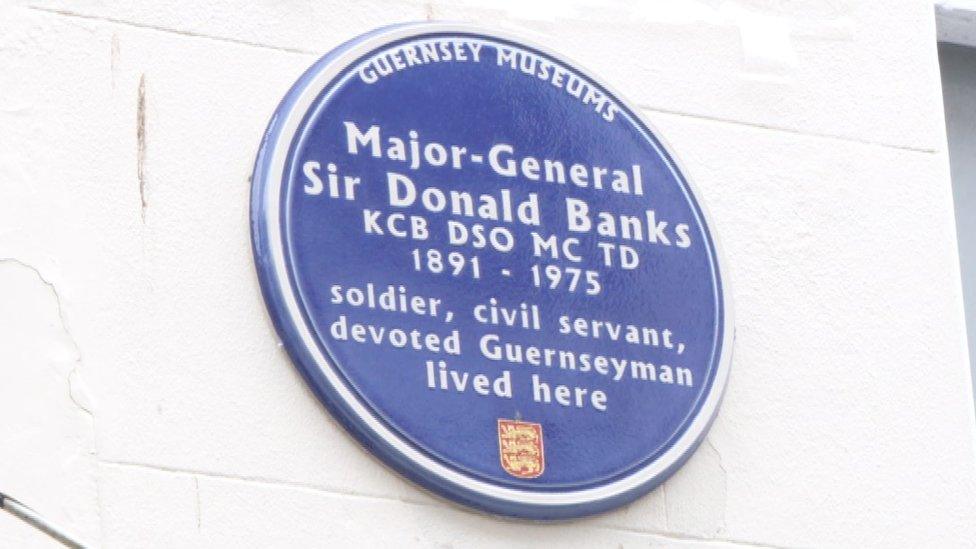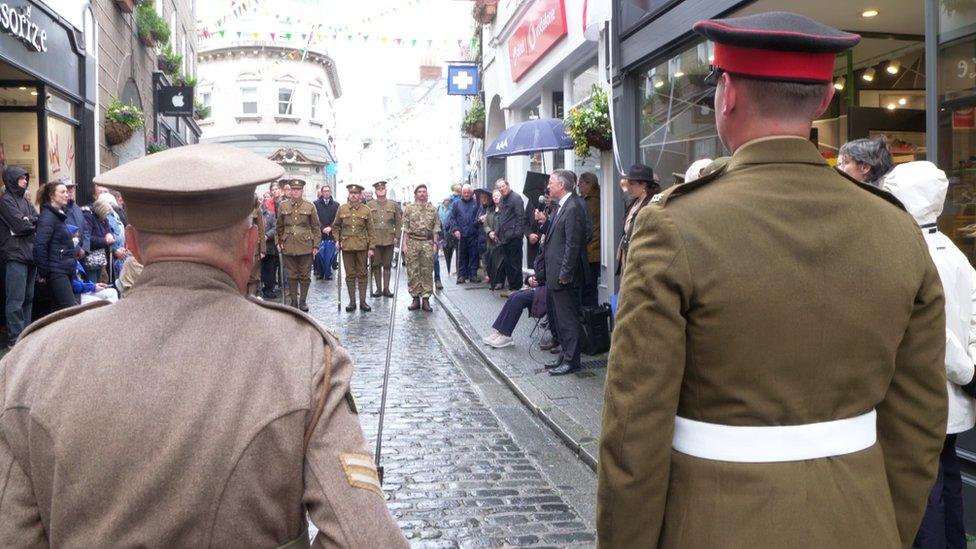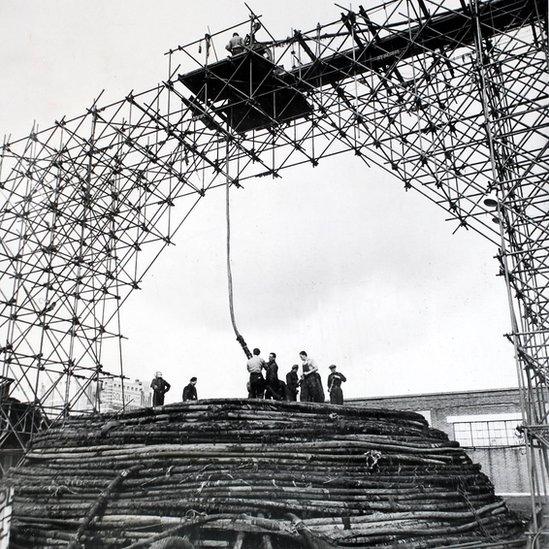Guernsey blue plaque put up for Sir Donald Banks
- Published

The blue plaque is the 12th to be put up in Guernsey
A founder of the Guernsey Society, who was also a World War One veteran and a key civil servant during World War Two has been celebrated with a blue plaque.
Born in 1891, Maj Gen Sir Donald Banks was educated at Elizabeth College and left the island in 1909 to take up a position in the British Civil Service.
Although he never returned to live in the island, he retained strong links.
During the World War Two occupation of the island, he helped evacuees and lobbied on behalf of the island.

A guard of honour was present at the unveiling
On the orders of Prime Minister Winston Churchill, Sir Donald established the Petroleum Warfare Department, which created numerous innovations including techniques for dispersing fog at airfields and Pluto - a fuel pipeline under the English Channel.
The pipeline ran from the Isle of Wight to Cherbourg to provide fuel for the liberating forces as they fought through Europe after the breakout following the Normandy Landings.
Pluto was praised by Dwight D Eisenhower, the Supreme Commander of the Allied Expeditionary Force, who called it "second in daring only to the artificial Mulberry harbours" among the innovations developed for D-Day.
Sir Donald was awarded the US Presidential Legion of Honour for his achievements.

The Pluto cable ran from the Isle of Wight to Cherbourg and fed millions of gallons of fuel to Allied invasion forces
Steve Foote, vice-chairman of the Guernsey Society, said: "It's wonderful to see this blue plaque being unveiled to such a well-deserved and devoted Guernsey man.
"His love of Guernsey and the wellbeing of the islanders was never far from his mind. In particular, his efforts during World War Two, when he formed the Guernsey Society to keep the plight of the islanders at the forefront of the British Government's plans," he said.

Sir Donald Banks KCB DSO MC TD
During World War One, he rose through the Army's ranks, from private in the London Yeomanry to lieutenant colonel, commanding the 10th Essex Regiment
He was awarded the Military Cross, Distinguished Service Order, Croix de Guerre and was mentioned in dispatches twice
First director general of the General Post Office
Worked for the Air Ministry with responsibility for the rearmament of the Royal Air Force during the build-up to World War Two
Actively involved in the Channel Islands Refugee Committee in London
Broadcast a speech 'Sand and Granite' on BBC Radio in 1942
Helped set up the Guernsey Society in 1943 to represent the interests of islanders - refugees and those living under military occupation - to the British government
Director of Elizabeth College in exile
After the war, he became a director of De La Rue and kept a herd of Guernsey cattle at his home in the New Forest
He wrote his memoirs during the 1960s and died in Hampshire in 1975

The plaque was unveiled at 43 High Street, St Peter Port on Monday morning.
It had a guard of honour provided by the 10th Essex Living History Group - which is modelled on the World War One regiment Sir Donald commanded - and the Elizabeth College Combined Cadet Force.
This was where Sir Donald lived when he grew up, above his father's bookshop.
Helen Glencross, head of heritage services and member of the Blue Plaques Panel, described him as "a worthy recipient".
She said: "His plaque will be prominent on the High Street and we are very grateful to the owners of the property who have made this possible."
This was the 12th blue plaque to be placed on the island since the scheme, which recognises Guernsey people who have made an important contribution to the Bailiwick and the wider world, was launched in 2008.

Follow BBC Guernsey on Twitter, external and Facebook, external. Send your story ideas to channel. Islandschannel.islands@bbc.co.uk, external.